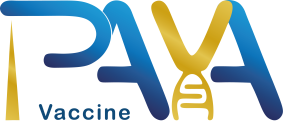Services
Paya Vaccine Tavana Servises
Advanced services
Paya Vaccine Tavana Servises
Paya Vaccine Tavana believes that successful vaccination and increased immunity play a fundamental role in protecting the poultry industry. This service is known as a vital tool in the prevention and spread of diseases.
sampling
The reliable technical team of Paya Vaccine Tavana performs sample collection and analysis services by various methods on a regular basis for the following reasons:
– Designing vaccination programs and monitoring the safety response and health of flocks, by the expected protection curve for poultry farms in order to support customers.
– Monitoring the spread and occurrence of diseases in poultry and conducting epidemiological surveillance on these diseases, as well as conducting epidemiological mapping to detect diseases in the region.
– Safety status and epidemiological mapping services can help poultry farmers to optimize their products and profits and support government efforts in supporting related products, as well as in supporting government strategies to control and eradicate poultry diseases and maintain food security and prosperity. It is also economically effective.
Diagnosis
Paya Vaccine Tavana has a highly skilled technical team and advanced technologies in veterinary problem diagnosis strategies, which include proper sample collection, detection and isolation of disease agents, as well as conventional processes or the use of molecular biology techniques and pathogen genome sequencing and genotyping.
Laboratory tests
– Culture
– PCR
– Real-Time PCR
– HI
– ELISA
– Sequencing
Hemagglutination viruses, such as influenza, have a coat protein called hemagglutinin, or HA, that binds to sialic acid receptors on cells. The virus also binds to erythrocytes (red blood cells), forming a network. This phenomenon is known as hemagglutination and is the basis for a rapid method to determine the amount of influenza virus in a sample. To perform this method, a 2-fold serial dilution of the virus is prepared, mixed with a certain amount of red blood cells and added to the wells of a plastic tray. Red cells that are not attached to the influenza virus sink to the bottom of the well and form a button. The red cells attached to the virus particles form a network that covers the well. This method can be performed within 30 minutes and is therefore a rapid indicator of the relative amounts of virus particles.
The molecular department uses polymerase chain reaction (PCR) technology to identify the presence of nucleic acids (DNA/RNA) in pathogens in clinical samples. Molecular diagnostic tests are faster and more sensitive than other conventional methods such as bacterial culture or virus isolation. A wide variety of tests are available for the detection of bacteria, fungi, and viruses isolated from a variety of animals, including pathogens of chickens, cattle, cats, dogs, horses, marine organisms, and laboratory animals. These techniques can distinguish pathogenic from non-pathogenic strains by identifying specific genes in various pathogenic strains.
Sequencing the genetic material (DNA or RNA) of infectious agents can be a powerful tool to identify an agent, investigate changes in the agent, and discover new diseases.
ELISA (enzyme-linked immunosorbent assay) is one of the most sensitive diagnostic technologies available. These methods are fast, simple to perform and easily automated. As with any applicable method, the repeatability and reliability of ELISA depends on correct technique and attention to detail. Paya Vaccin Tovana has a serology department that implements a series of ELISA kits for the quantitative detection of livestock infections, zoonotic pathogens as well as veterinary drugs that facilitate veterinary science clinical research or treatment.
Contact us to get excellent service
With one call, you will benefit from the best advice in the field of poultry vaccination.
